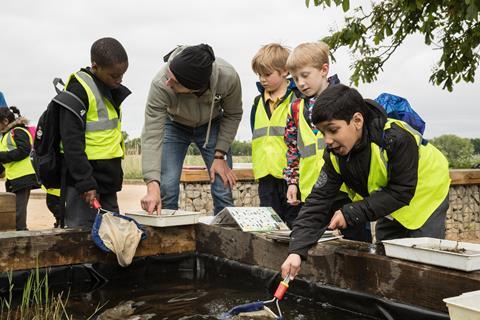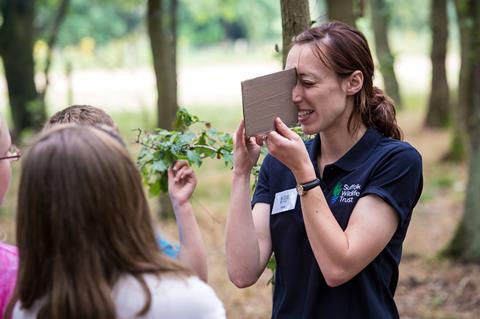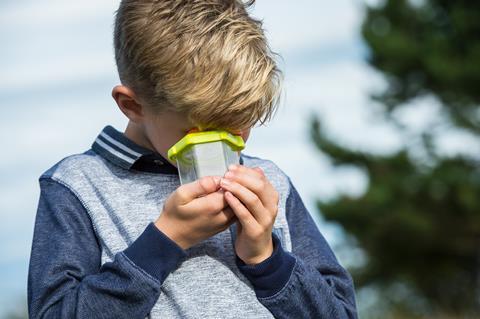A new report commissioned by The Wildlife Trusts has shown that Primary school children can improve their wellbeing by taking part in different nature-based activities.

The study focused on more than 450 Primary school children and the effects of Wildlife Trust-led activities on their wellbeing.
Overall the research showed that after the children spent time connecting with nature, pupils’ personal wellbeing and health improved, as well as showing an increase in nature connection after demonstrating high levels of enjoyment.
This is one of the largest studies into the effects of outdoor activities on children’s wellbeing and views about nature.
Nigel Doar, The Wildlife Trusts’ director of strategy, said: “This research shows that children experience profound and diverse benefits through regular contact with nature.
“Contact with the wild improves children’s wellbeing, motivation and confidence. The data also highlights how children’s experiences in and around the natural world led to better relationships with their teachers and class-mates.”
Lessons from nature: a huge survey
The research was carried out by the Institute of Education at UCL (London’s Global University), where the team studied children participating in outdoor activities with their local Wildlife Trust, ranging from a single activity, to a series of activities over the course of several weeks.
451 children (mostly eight to nine-years-old) in 12 areas across England took part by completing surveys before and after different outdoor activites.
Teachers, Wildlife Trust educators and 199 of the participating children were also interviewed about their experiences.

The outdoor activities involved children learning about nature, such as identifying plants and trees, reflecting on their important role and considering the needs of wildlife habitats.
‘Nature connection’ was measured too, a term referring to the level at which a person considers nature to be part of their identity, ‘reflecting their emotional closeness to the natural world’.
Professor Michael Reiss, from the Institute of Education at UCL, said: “Each generation seems to have less contact with the outdoors than the preceding one. We owe it to all young people to reverse this trend – for their sakes, for our sakes and for nature’s sake.”
Key findings from the study
- 90% of children felt they learned something new about the natural world.
- 79% felt that their experience could help their school work.
- After their activities, 84% of children felt that they were capable of doing new things when they tried.
- 79% of children reported feeling more confident in themselves.
- 81% agreed that they had better relationships with their teachers.
- 79% reported better relationships with their class-mates.
About The Wildlife Trusts
There are 46 individual Wildlife Trusts covering the whole of the UK, with more than 850,000 members nationwide.
The Trust manages around 2,300 nature reserves and every year advises thousands of landowners and organisations how to manage their land for wildlife.

Each Wildlife Trust works within its local community to inspire people about the future of their area.
Nigel Doar added: “The Wildlife Trusts believe everyone should have the opportunity to experience the joy of wildlife in daily life and we’re calling on government to recognise the multiple benefits of nature for children – and ensure that at least one hour per school day is spent outdoors learning and playing in wild places.”
For more information about the work of The Wildlife Trusts, visit wildlifetrusts.org.










